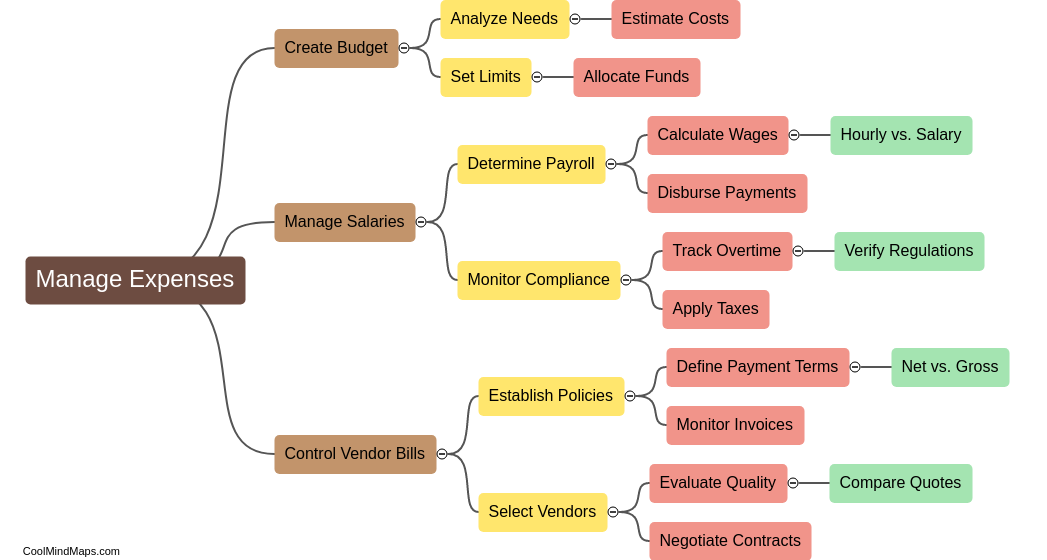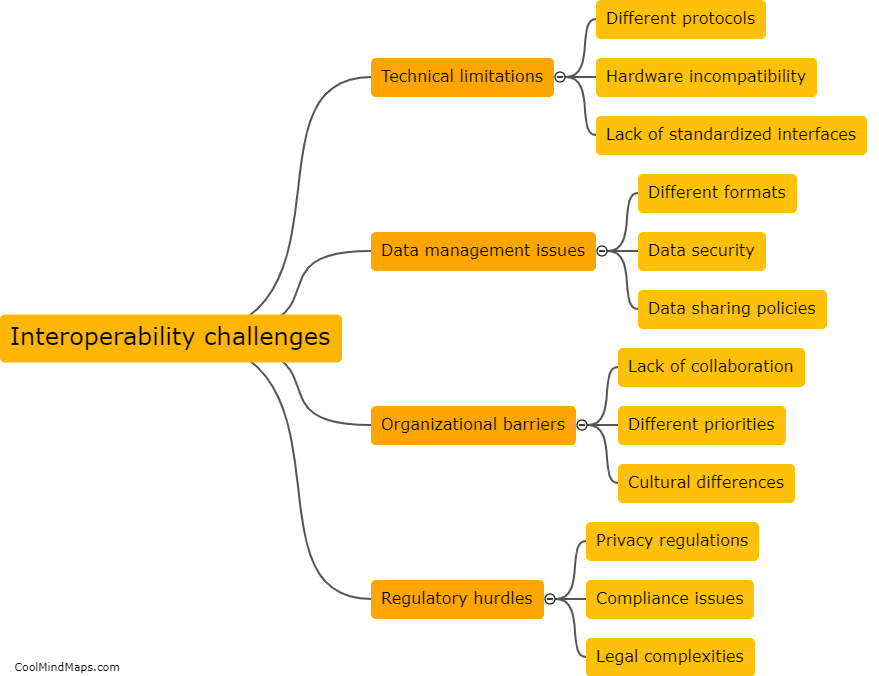What are the benefits of interoperability?
Interoperability refers to the ability of different software systems and devices to communicate and work seamlessly together. The benefits of interoperability are numerous, including improved efficiency, productivity, and cost savings. Interoperable systems can eliminate redundant processes and streamline data exchanges, thereby reducing errors and increasing accuracy. This leads to better decision making, as well as better use of resources. Additionally, interoperability enables organizations to collaborate more effectively with partners and stakeholders, resulting in better outcomes for all involved. Overall, the benefits of interoperability are substantial, and they are critical in today's increasingly interconnected technological landscape.

This mind map was published on 1 May 2023 and has been viewed 66 times.











